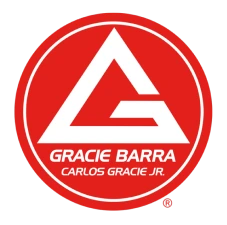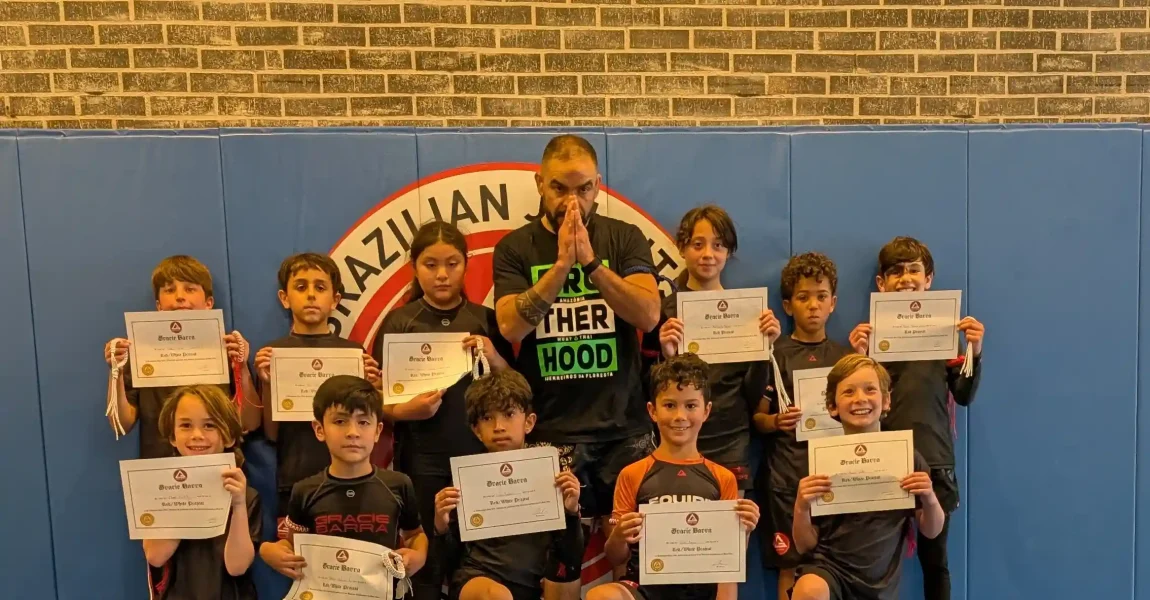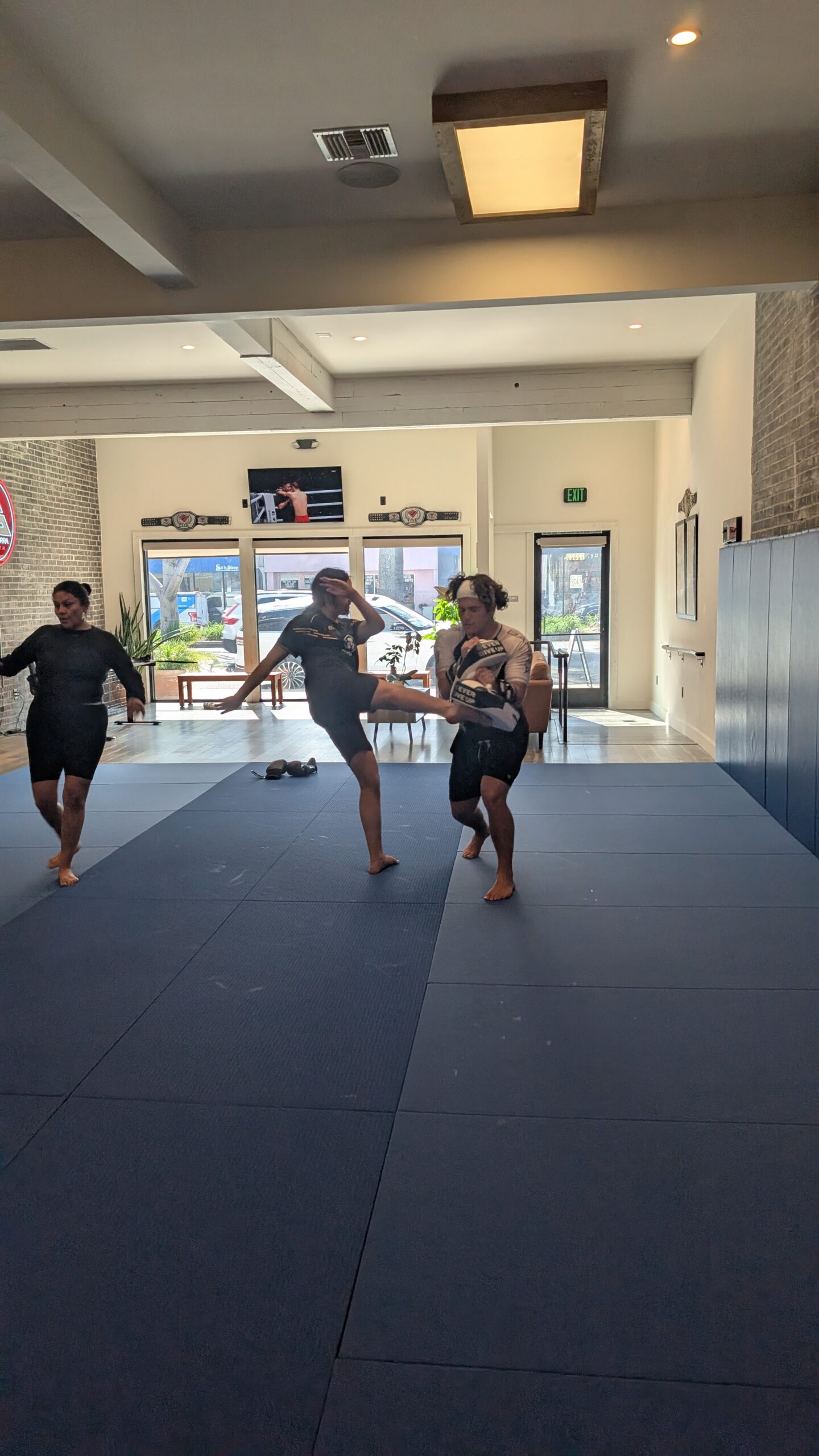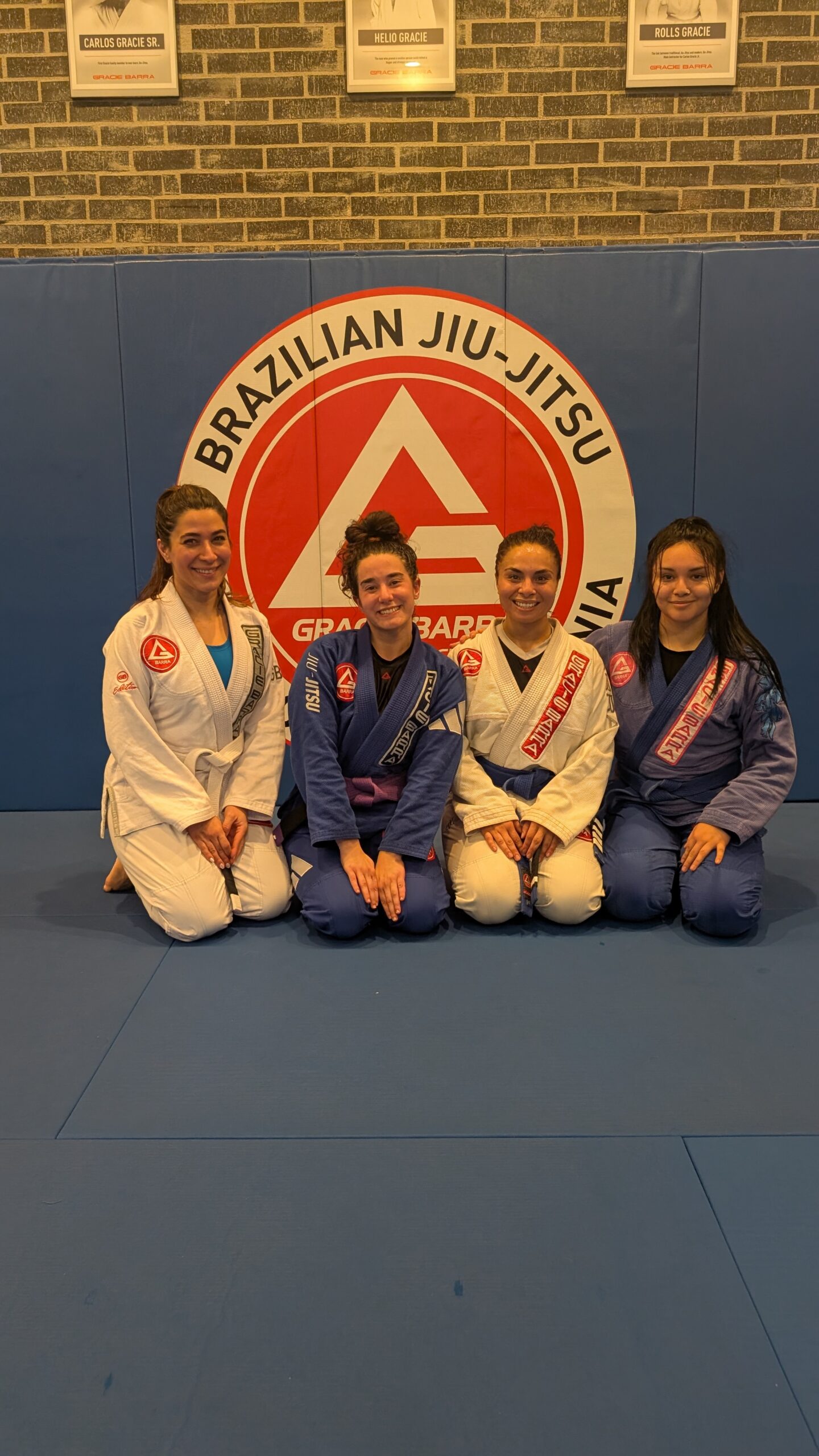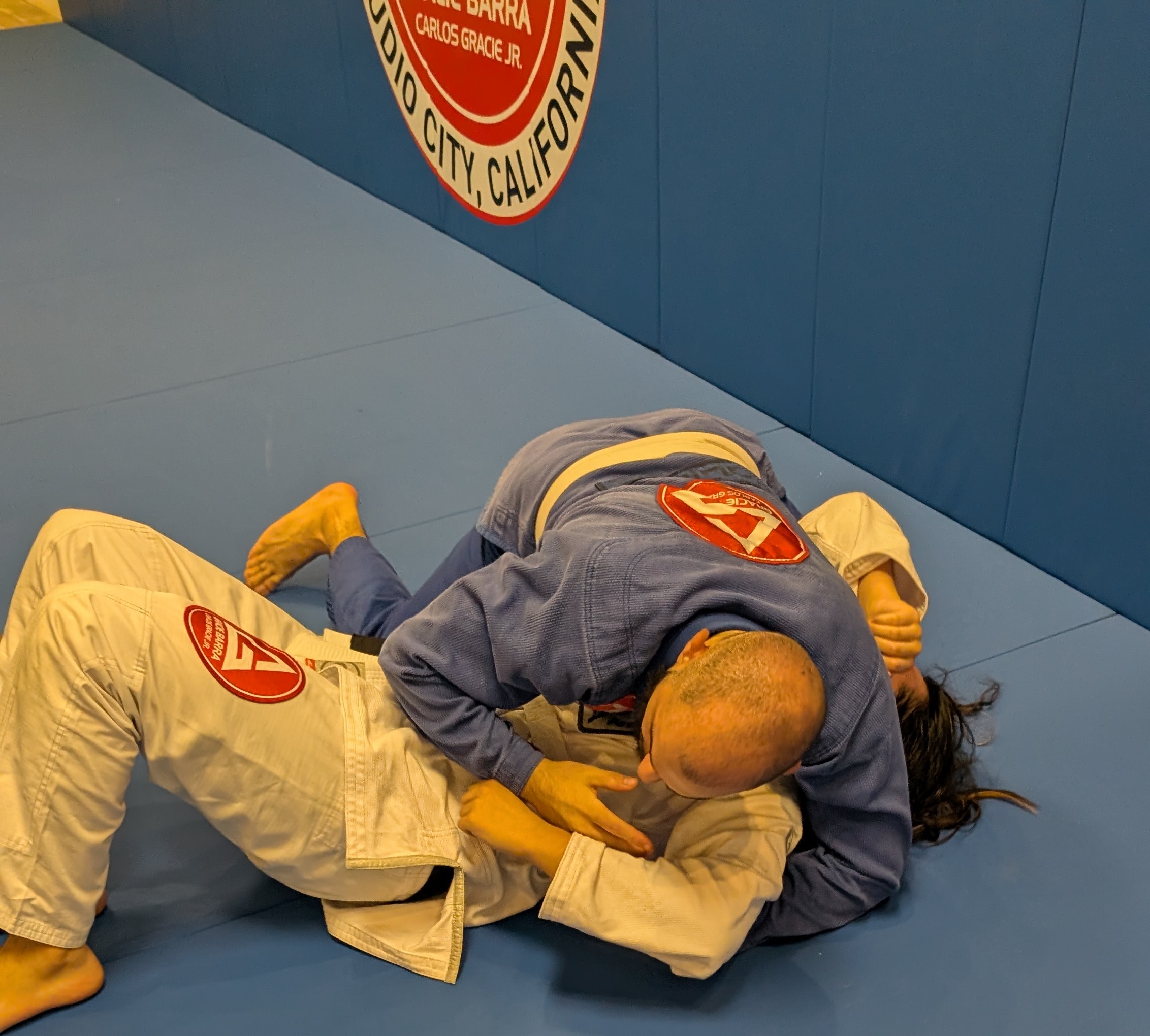In today’s world, where children face numerous challenges from screen addiction to academic pressure, finding the right activity that benefits them both physically and mentally is crucial. Brazilian Jiu-Jitsu (BJJ) has emerged as an exceptional martial art that offers far more than just self-defense skills. At our Brazilian Jiu-Jitsu school, we’ve witnessed remarkable transformations in children who join our Brazilian Jiu-Jitsu classes.
What Makes Brazilian Jiu-Jitsu Special for Children?
Brazilian Jiu-Jitsu is a ground-based martial art that focuses on leverage and technique rather than brute strength or striking. This makes it uniquely suited for children of all body types and personalities. Unlike striking-based martial arts, BJJ allows children to practice at full intensity safely, providing real-world experience while minimizing injury risk.
A quality Brazilian Jiu-Jitsu school creates an environment where children learn through guided discovery, developing problem-solving skills that extend far beyond the mats. Training sessions typically combine warm-ups, technique instruction, situational drilling, and supervised sparring (known as “rolling”), all designed to engage young minds and bodies simultaneously.
Physical Development Through Brazilian Jiu-Jitsu
Children who regularly attend Brazilian Jiu-Jitsu classes experience comprehensive physical development:
- Enhanced Coordination and Body Awareness: The technical nature of BJJ movements helps children develop extraordinary proprioception awareness of their body in space, which benefits them in all physical activities.
- Improved Strength and Cardiovascular Health: BJJ provides full-body conditioning without the monotony of traditional exercise. Children build strength, endurance, and flexibility through engaging, play-like movements.
- Healthy Weight Management: In an era of increasing childhood obesity, BJJ offers energetic activity that burns calories while teaching children to respect their bodies and understand physical wellness.
A parent from our Los Angeles Jiu-Jitsu Academy recently shared: “My son struggled with coordination issues that affected his confidence in school sports. After six months in Brazilian Jiu-Jitsu classes, not only has his coordination improved dramatically, but he’s now eager to participate in all physical activities.”
Transform Your Fitness Journey—Book a Free Trial Class!
Mental and Emotional Growth Champions
Perhaps the most profound benefits of Brazilian Jiu-Jitsu for kids are psychological:
- Building Resilience Through Challenge: BJJ teaches children that temporary failure is part of the learning process. When a technique doesn’t work, they learn to adjust and try again, a mindset that serves them throughout life.
- Focus Development: In today’s distraction-filled world, the concentrated attention required in BJJ training strengthens children’s ability to focus. This improved concentration often translates to better academic performance.
- Self-Confidence Cultivation: As children master techniques and experience gradual improvement, they develop authentic confidence based on real achievement rather than empty praise.
The structured environment of a reputable Brazilian Jiu-Jitsu school encourages children to set goals, work consistently toward them, and celebrate milestones along their journey.
Social Skills and Community Connection
BJJ creates a unique social environment:
- Respect for Others: Children learn to treat training partners with care and consideration, understanding that mutual respect creates the best learning environment.
- Teamwork Within Individual Sport: While BJJ is technically an individual sport, training requires cooperation. Children learn to help each other improve, fostering a community mindset.
- Diverse Friendships: Our Brazilian Jiu-Jitsu classes in Los Angeles bring together children from Studio City, Hollywood, and surrounding communities, creating friendships across social, economic, and cultural boundaries.
Self-Defense for the Modern World
While we emphasize character development, the self-defense aspect of Brazilian Jiu-Jitsu for kids 3 to 5 years old remains invaluable:
- Practical Protection: BJJ equips children with techniques that work regardless of size difference, critical knowledge for dealing with potential bullying situations.
- Conflict Resolution: Perhaps more importantly, BJJ instills the confidence to avoid physical confrontation altogether. Children learn that true self-defense begins with awareness and verbal de-escalation.
- Prevention Through Awareness: BJJ training includes recognizing potentially dangerous situations and making smart choices about personal safety.
Academic and Behavioral Improvements
Parents consistently report positive changes beyond the dojo:
- Improved Academic Performance: The discipline and focus cultivated in BJJ often translate directly to classroom success. Many children show marked improvement in grades after beginning regular training.
- Better Behavior Management: Children learn to channel energy appropriately and develop emotional regulation skills that help at home and at school.
A recent survey published in the EJ Sport Journal (2024) revealed remarkable statistics about the benefits of BJJ training for children:
Benefits of BJJ in Kids | Percentage of Parents Observing Improvement |
Confidence | 96.4% |
Reduced Anxiety | 87.5% |
Commitment | 92.8% |
Mental Flexibility | 92.9% |
Mood Enhancement | 92.8% |
Respectfulness | 78.5% |
Life Skills Transfer | 96.4% |
Concentration | 78.6% |
These numbers align with what we observe daily at our Gracie Barra Academy locations across the Los Angeles area.
Choosing the Right Brazilian Jiu-Jitsu Program
When selecting a BJJ program for your child, consider:
- Qualified Instructors: Look for teachers who understand child development and create age-appropriate lessons.
- Positive Environment: The dojo should emphasize growth, not just competition.
- Clean, Safe Facilities: Proper mats and hygiene practices are essential.
- Structured Curriculum: Progressive learning ensures consistent development.
- Trial Classes: Quality programs offer opportunities to try before committing.
Step Onto the Mat and Start Your BJJ Adventure!
Conclusion: A Foundation for Lifelong Success
Brazilian Jiu-Jitsu provides children with much more than just athletic skills it builds character attributes that serve them throughout life. The combination of physical activity, mental challenge, social connection, and practical self-defense creates well-rounded development rarely found in a single activity.
Whether your child is naturally athletic or more reserved, Brazilian Jiu-Jitsu offers a path to greater confidence, discipline, and joy. We invite you to visit our Brazilian Jiu-Jitsu school to see firsthand how this remarkable martial art is transforming young lives throughout our community.
Frequently Asked Questions About BJJ for Kids
No, it is quite the opposite. Brazilian Jiu-Jitsu teaches controlled responses and respect. Children typically become calmer and measured in their interactions.
Beginners can start with comfortable athletic clothes. As they continue, they’ll need a proper gi (uniform). Many schools provide these or can direct you to appropriate options.
Many quality programs offer classes for children as young as 3-4 years old with age-appropriate activities. More formal training typically begins around 5-6 years.
Yes, in multiple ways. BJJ builds confidence that often prevents bullying, teaches verbal de-escalation, and as a last resort, provides physical techniques for protection.
Brazilian Jiu-Jitsu emphasizes ground techniques and leverage rather than strikes. This allows for safer practice at full resistance, providing more realistic training experience.
Visit several schools, observe classes, speak with instructors about their teaching philosophy, and consider a trial period before committing.
